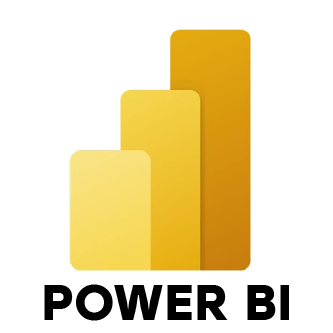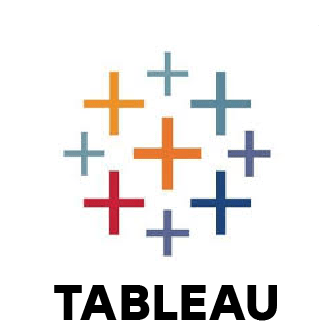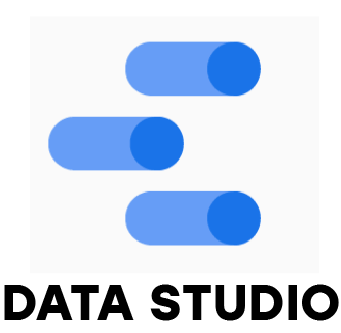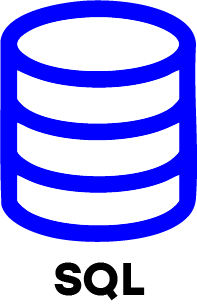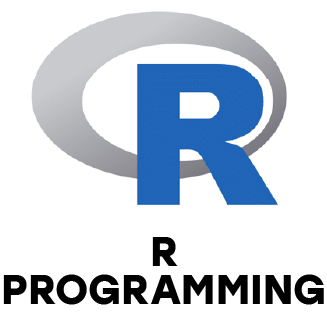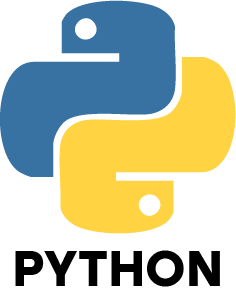Data Analytics in Ahmedabad is applications incorporating machine learning algorithms, simulation, and automated systems may be used in data analytics processes and techniques. For human use, the systems and algorithms work on unstructured data.These findings are interpreted and applied to assist organisations in better understanding their clients, analysing promotional campaigns, customising content, developing content strategies, and developing products. Data analytics enables businesses to maximise market efficiency and increase profits.
Additional Info
Introduction:
You will learn about the data ecosystem and the fundamentals of data analysis, such as data collection and data mining. You will then learn the soft skills required to effectively communicate your data to stakeholders, as well as how mastering these skills can allow you to become a data-driven decision maker.By the end of this course, you will be able to visualise a Data Analyst's daily life, understand the various career paths available for data analytics, and identify the numerous resources available for mastering this profession.
This course will teach you how to tell the difference between a Data Analyst, a Data Scientist, and a Data Engineer. You will learn about the duties of a Data Analyst and what data analysis entails. You will be able to sum up the data ecosystem, including databases and data warehouses. You will then learn about the major vendors in the data ecosystem and investigate the various tools available on-premise and in the cloud. Continue on this exciting journey and learn about Big Data platforms like Hadoop, Hive, and Spark.
This course will teach you the fundamentals of data analysis. You will begin to investigate the fundamentals of data collection and how to identify your data sources. You will then learn how to use visualisations and dashboard tools to clean, analyse, and share your data. This all comes together in the final project, which will put your knowledge of the course material to the test, explore what it means to be a Data Analyst, and provide a real-world data analysis scenario.This course provides a gentle introduction to data analysis concepts, the role of a Data Analyst, and the tools used to perform daily functions.
Advantages:
1. Decision making becomes more effective:
- Companies may use data analytics information to guide their decisions, resulting in better results.
- Data analytics takes a lot of the guesswork out of marketing plans, deciding what material to make, creating goods, and other tasks.
- With advanced data analytics technologies, new data can be collected and analysed on a continuous basis to improve your understanding of changing circumstances.
2. Marketing becomes more effective:
- When businesses better understand their customers, they can sell to them more effectively.
- Data analytics also provides businesses with invaluable insights into how their marketing campaigns are performing, allowing them to fine-tune them for better results.
3. Improved customer service:
- Data analytics provides businesses with a deeper understanding of their customers, allowing them to tailor their customer experiences to their specific needs, offer more customization, and build stronger relationships with them.
4. Operational efficiency improves:
- Data analytics will assist businesses in streamlining operations, saving resources, and improving their bottom line.
- Businesses spend less time producing advertisements that do not meet the desires of the audience when they have a better understanding of what the audience needs.
Career path of Data Analytics Training:
1. Data analyst:
- Many data scientists begin their careers as data analysts.
- Making this transition usually entails.
- Developing your programming abilities.
- Taking more advanced math classes.
- Increasing your knowledge of machine learning.
- Many data scientists have a background in data science, computer science, or a related field.
- While a degree is not strictly required, having one can lead to more job opportunities.
2. Administration:
- Moving into management positions is another common career path for data analysts.
- You could begin as a data analyst and work your way up to senior-level analyst, analytics manager, director of analytics, or even chief data officer (CDO).
- If you want to pursue this path, you should focus on developing your leadership skills as well as your data skills.
- A master's degree in data analytics or business administration with a focus on data analytics may be required in some companies to advance to these higher-level positions.
3. Professional:
- As a data analyst, you could work in a variety of industries.
- Your career path may take you deeper into the specialised knowledge of that industry at times.
- Data is used by business analysts to improve the efficiency and effectiveness of an organization's IT processes, organisational structures, and staff development.
- Data is used by financial analysts to guide investment opportunities, identify revenue opportunities, and mitigate financial risk.
- Operations analysts are responsible for improving a company's performance by identifying and resolving technical, structural, and procedural problems.
- Marketing analysts, also known as market research analysts, study market trends in order to determine product and service offerings, price points, and target customers.
- Cost-benefit analysis is used by systems analysts to help match technological solutions to the needs of the company.
- Data from health records, cost reports, and patient surveys are used by healthcare analysts to help providers improve their quality of care.
4. consultant:
- After gaining several years of experience analysing data for a company (or several companies), you might want to consider working as a data analytics consultant.
- Instead of directly working for a company, you would work as a freelance contractor or for a consulting firm, performing analysis for a variety of clients.
- Working as a consultant usually entails more variety in the type of analysis you perform, as well as greater flexibility (especially if you are self-employed).
Roles and Responsibilities:
- The answer to the question "What does a data analyst do?" will differ depending on the type of organisation and the degree to which a company has adopted data-driven decision-making practises.
However, in general, a data analyst in Ahmedabad responsibilities typically include the following:
- Designing and maintaining data systems and databases, including the correction of coding errors and other data-related issues.
- Data mining from primary and secondary sources, followed by data reorganisation in a format that can be easily read by both humans and machines.
- Using statistical tools to interpret data sets, with a focus on trends and patterns that could be useful for diagnostic and predictive analytics efforts.
- demonstrating the importance of their work in the context of local, national, and global trends affecting their organisation and industry
Preparing reports for executive leadership that use relevant data to effectively communicate trends, patterns, and predictions.
- Collaborating with programmers, engineers, and organisational leaders to identify process improvement opportunities, recommend system changes, and develop data governance policies.
- Developing appropriate documentation that enables stakeholders to understand the steps of the data analysis process and, if necessary, duplicate or replicate the analysis.
Skills Covered in Data Analytics Course:
1. Analytical Consciousness:
- Most business requirements involve the use of analysis; for example, managerial concerns and decisions are frequently derived from dataset metrics.
- Analytical thinking is thus one of the most important skills for a Data Analyst.
- Analytical thinking requires skill in configuring the parameters that must be considered when defining datasets, analysing them from various perspectives, and determining variable dependencies.
- The resulting data can assist businesses in reaching meaningful conclusions.
- Analytical thinking is one of the most important skills for Data Analysts because it breaks complex problems down into simple parts and solves them one at a time.
2. SQL Database:
- SQL databases have been added to the list of skills required for a Data Analyst.
- They are relational databases that store structured data in tables.
- A professional Data Analyst must be skilled at extracting relevant information from various tables in order to perform analysis.
3. Analysis Of Decisions:
- Decision analysis is an obvious answer for those wondering about the skills required for a Data Analyst job role.
- A Data Analyst must be well-versed in multi-purpose decision analysis, decision trees, influence diagrams, and even sensitivity analysis.
4. Mathematical anda Statical Experience:
- A basic understanding of mathematical and statistical concepts is required to work as a Data Analyst.
- Data Analysts with mathematical skills can pursue logical thinking, identify patterns, and even design algorithms to serve business purposes.
- Data Analytics requires mathematical concepts such as linear algebra, calculus, optimization theory, and discrete math, among others.
- Furthermore, a thorough understanding of statistical concepts assists data professionals in collecting relevant data via streamlined analysis and presentation.
- Data analysts must be skilled in probability theory, data transformation, regression, classification, statistical computation, and even graphics in order to facilitate data-based predictions.
5. Analtics Of Software:
- When discussing the skills of Data Analysts, software analytics should not be overlooked.
- Analytical topics at the organisational level, change management, data topics, IT and business users, presentation, and communication are all part of software analytics.
6. Skills in Programming:
- Although a Data Analyst's skill set must extend beyond coding to include areas such as data crafting and presentation, programming languages are required to successfully execute business operations.
- Popular programming languages in the industry include R, Python, Matlab, and SAS.
- Acquiring knowledge of these popular programming languages is an essential addition to a Data Analyst's portfolio.
- It enables advanced analytics on massive datasets without the need for external programming experts.
Who can Learn:
Is Data Analyticsin Ahmedabad is a viable career path?
A career in data analytics is not only a viable option, but also one of the most popular today. By completing a Master's in Data Analytics, you will be able to find jobs in this domain across a wide range of industries and companies all over the world.According to the Bureau of Labor Statistics, the estimated growth rate for Data Analytics professionals will be 23% by 2026.
How are ACTE-verified certificates given out?
You will be awarded a completion certificate after completing the ACTE training programme, working on real-world projects, quizzes, and assignments, and scoring at least 60% on the qualifying exam. This certificate is very well recognised by its affiliated organisations, which include over 80 top MNCs from around the world as well as some Fortune 500 companies.
What are the requirements for becoming a Data Analyst?
To work as a Data Analyst, you must have the following credentials:
- A Bachelor's degree is required for entry-level positions.
- A Master's degree is required for higher-level positions.
- You should have a degree in statistics, mathematics, computer science, or a related field.
What exactly do you mean by "Data Analysis"?
Data analysis is the process of cleaning, transforming, and reporting data in order to generate valuable information that can be used to make business decisions.
Tools Involved in Data Analytic Training:
Here is a list of the top ten data analysis tools that we will go over in depth:
- Sequentum Enterprise.
- Datapine.
- Looker.
- KNIME.
- Lexalytics.
- Forecasting with SAS.
- RapidMiner.
- OpenRefine.
- Talend.
- NodeXL.
Payscale:
1.Data Analytics in Ahmedabad experience is an important factor in determining salary, regardless of profession or industry, and this is true for data analyst salaries as well!
2. An experienced senior data analyst can earn between $831K and $1,573K per year!
3. An entry-level data analyst earns more than $400K per year.




